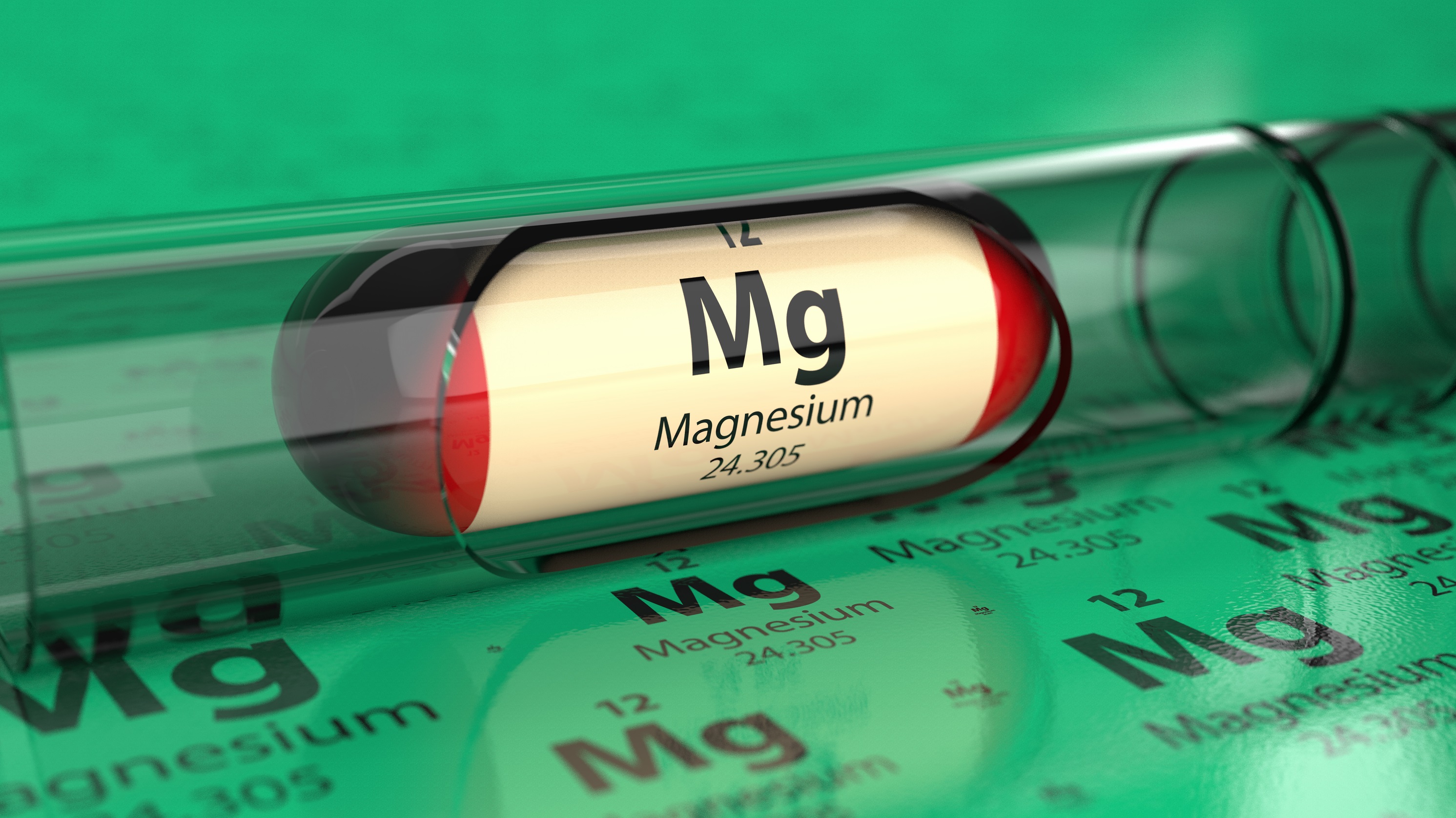Millions use it! Why is magnesium shining? How should it be used?

In the rapidly evolving world of supplements, it's magnesium's time to shine.
The sector is growing rapidly. The global magnesium market is worth almost £3 billion and is expected to nearly double in the next decade.

In a small factory in the Yorkshire Dales, huge plastic drums full of white powder are stacked next to giant whirring machines.
Workers wearing hazardous materials protective clothing carefully weigh magnesium citrate, a compound made by mixing the mineral with citric acid, into shiny steel containers.
"We ship our supplies all over the world," says Andrew Goring, managing director of Lonsdale Health. "We ship across the UK, of course, but also to Australia, parts of Asia, Kuwait and Iraq. It's one of our best-selling products and the market continues to grow."
"Do we really need it?" I shouted over the drone of the pill press, which was spewing dozens of small, white magnesium tablets per second. "And why now? Why has it become so popular?"
"Social media influencers are what's driving this business. We've known about magnesium and its benefits for years, and it's finally gone mainstream," Goring explains.

"Clever marketing schemes suggest that magnesium is used in areas where people are willing to invest: sleep, digestion, mental health," says Kirsten Jackson, a dietitian specializing in gut health.
But he also emphasizes that this doesn't automatically mean we need supplements to improve these things.
Magnesium is one of many minerals in our bodies. The recommended daily allowance for women is 270 mg and for men, 300 mg. We store about 25 grams.
"It may make up less than 1 percent of us, but it's involved in over 300 different processes," Jackson says. "It's especially important for our brain and mood," because it helps nerves send messages properly and supports the building blocks of brain cell membranes.
It also helps balance blood sugar levels, regulate blood pressure, and plays an important role in moving calcium and potassium into and out of our cells, which helps maintain our heart rhythm.
So, taking a pill of this substance should keep our body functioning properly, right?
It's more complicated than that, Jackson says. For a magnesium supplement to work, we need to be deficient in the mineral in the first place, and since the vast majority of magnesium is stored in our bones and tissues, it's difficult to test for any deficiency.

But on an individual level, many people say supplementation makes a difference.
For Katie Curran, a communications specialist who has worked with some of the biggest fashion brands, sleeping well was something she could only dream of.
"A year ago, I was having a really hard time. It was taking me a long time to fall asleep, my brain was racing, and I would wake up only to wake up a few hours later," she admits.
Katie decided to try magnesium glycinate, a combination of magnesium and glycine. Glycine is an amino acid with limited evidence linking it to better sleep.
After two weeks of taking 270 mg a day, he says the noise in his head has subsided, his racing thoughts have slowed, and he feels able to function again.
"My sleep definitely improved, I had more energy. I became more active. Other things changed in my life too, so I can't attribute it to one thing, but I think magnesium supplements were an important piece of the puzzle."
While it's certain that magnesium deficiency can affect your sleep patterns, there's no evidence that taking a supplement will definitely improve your sleep.
Social media is awash with people eager to buy supplements, many of whom have the phrase "commission paid" in the corner of their posts, meaning they can monetize their stories or videos.
According to these influencers, there seems to be very little that magnesium can't help with, as they recommend a wide variety of products.
Magnesium is often combined with other compounds to support various parts of the body. For example, magnesium mixed with L-threonate or glycinate is thought to target brain health, aid sleep, and relieve stress.
When taken with magnesium chloride, it is recommended for muscle tension and premenstrual cramps, while the citrate and oxide mixtures are intended to facilitate digestion and help with constipation.
Most of us probably experience at least one of these issues. But as nutritionist Kristen Stavridis points out, the problem is that there isn't enough strong evidence to show that most of these different magnesium supplements have a positive effect on healthy populations.
Even so, we would need to be deficient in magnesium in the first place to see its benefits.
“Supplement companies are screaming at us: ‘We’re all going to die,’” Stavridis says. “‘Quick! Take my pill and there you have it, your solution.’ Many of us don’t get enough magnesium. About 10% of men and 20% of women don’t get the recommended daily intake. But taking supplements alone isn’t the answer,” he continues.
Take sleep health, for example. Stavridis says there are many conflicting studies about whether magnesium supplements actually make a difference. Some studies suggest magnesium supplements may have some benefits, while other randomized controlled trials—the gold standard—are more skeptical.
Additionally, supplements have the potential to work against each other due to their interactions in the body.
For example, zinc intake, a supplement often recommended for perimenopausal women, may also affect the absorption rate of magnesium.
It's a minefield, Stavridis says, and it's not a simple case of "just take this and you'll be fine."

He recommends looking at your diet first. But if you're considering a magnesium supplement, Stavridis recommends taking half the recommended amount daily and seeing how you feel.
When healthy people take too much, their kidneys can excrete it through "expensive urine," but there are still risks, such as diarrhea, vomiting, and nausea.
Taking magnesium supplements in people with kidney disease can be dangerous and cause hypermagnesemia, a potentially life-threatening condition that can lead to a stroke or coma.
Dietitian Kirsten Jackson also says most people "need to look at their nutrition 100% first."
Foods like seeds, nuts, whole-grain breads, greens, and fruits are good sources of magnesium, she says.
If you're not consuming these types of foods regularly, you're likely missing out on other essential nutrients like vitamin C, vitamin K, fiber, and prebiotics:
"Magnesium supplementation alone is not going to solve all of this."
BBC
Timeturk





